Many Buddhist and Taoist temples are scattered throughout Hong Kong. Both religions have shaped much of the city’s culture and society. If you’re passionate about culture and history, you should visit these diverse group of temples. Some of these monasteries host festivals that are worth visiting and participating as it would allow you to interact with locals. Each and every one of them also has beautiful structures and ornate features that make them worth visiting as well. Many of these monasteries attempt to integrate with their own natural environment, as it reflects adherence to harmony. Some of them are also fairly secluded and visiting them can make your visit to Hong Kong unique among others. So read below and discover the top temples in Hong Kong.
1. Chi Lin Nunnery
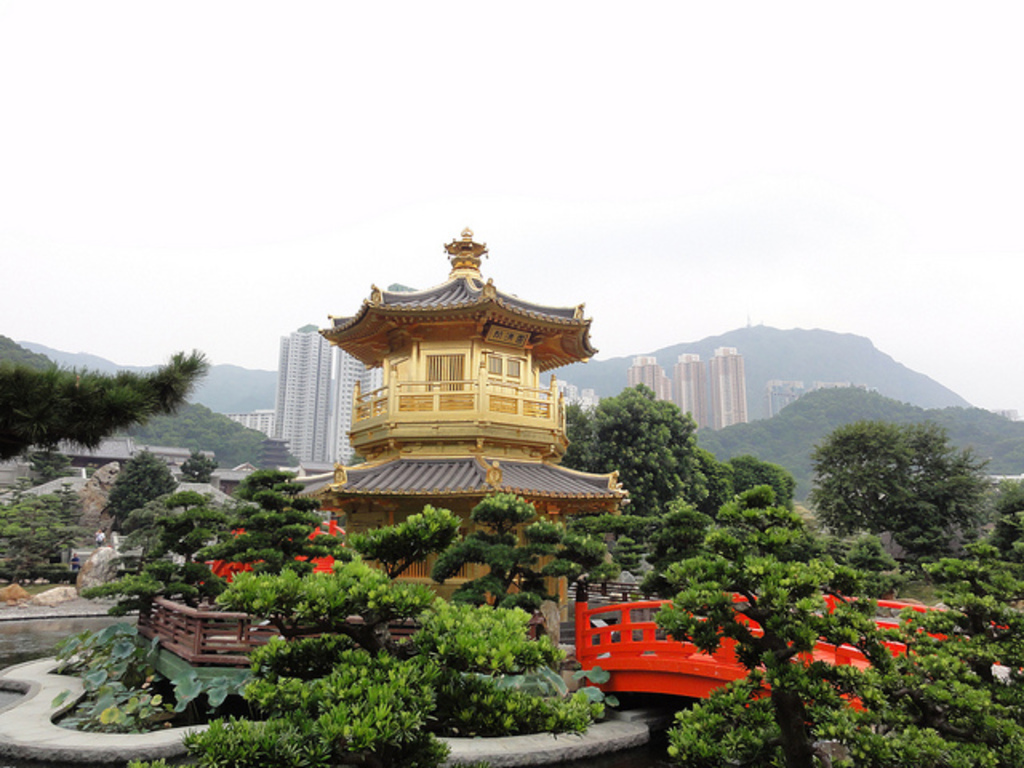
Built in 1934, and renovated in 1990, the Chi Lin Nunnery’s architecture is significantly influenced by the Tang Dynasty era. What makes Chi Lin’s architecture especially unique is its exclusive use of wood. In order to provide a harmonious relationship with nature, nails have not been used in its construction. This harmony is further showcased with lotus ponds and bonsai trees. The temple halls throughout the Chi Lin Nunnery contain beautiful statues made of clay, gold, and wood of divine figures including the Sakyamuni Buddha and the various bodhisattvas. Within Chi Lin, nuns give offerings of fruit and rice to the Buddha and arhats (Buddhist followers who have achieved nirvana). The contrast with the looming high-rises behind it makes it a breath of fresh air worth visiting.
2. Wan Chai Pak Tai Temple
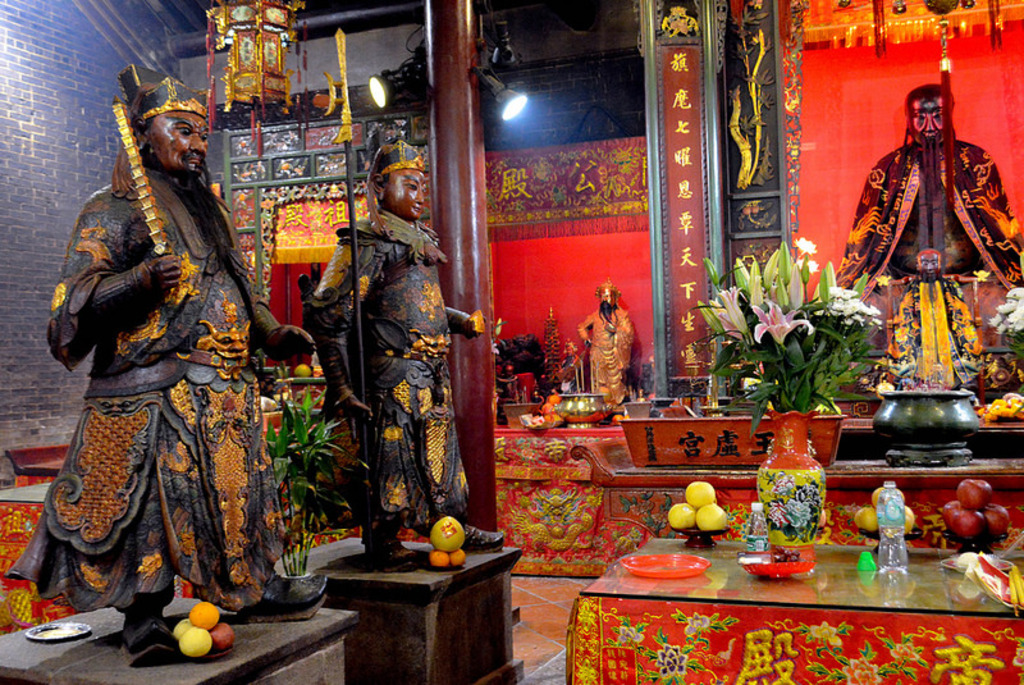
Officially known as Yuk Hui Kung, which translates as “Jade Void Palace,” it was built by Wan Chai residents in 1863 to honor Pak Tai, the Taoist sea god. The Hong Kong Government’s Antiques Advisory Board rated it as a Grade I historical building, which deems it a building worth preserving. It is known for its approximately 400-year-old Pai Tak statue that is about 3 meters (9.8 feet) tall and can be found in the main hall. There are three other halls for other Buddhist deities including the Three Pristine Ones, Lung Mo, and the God of Wealth. What makes this place especially worth visiting is that it hosts the Cheung Chau Bun Festival, which takes place on the eighth day of the fourth month of the lunar calendar. This festival honors the end of a plague that occurred during the Qing Dynasty, which ceased after the locals performed Taoist rituals to honor Pak Tai. The people of the nearby island of Cheung Chau make papier-mâché effigies of Taoist gods, bake buns, and build a bamboo tower. If you are in Hong Kong during this time of the year, you should join the festivities.
3. Che Kung Temple at Sha Tin
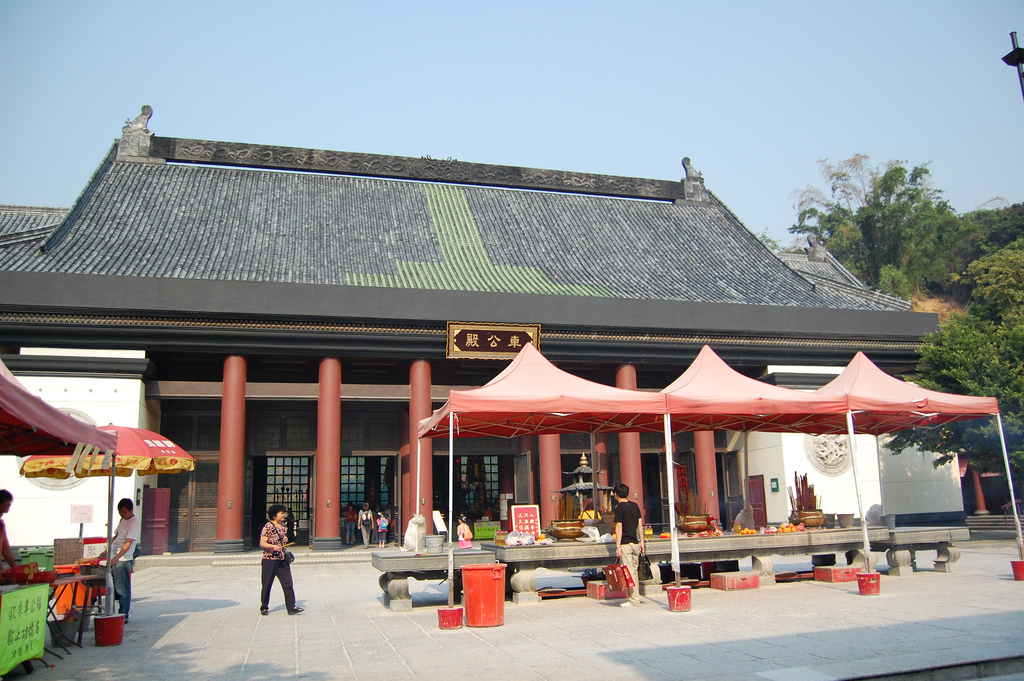
Located in Sha Tin in the New Territories, its locals built the temple to honor Che Kung, a military king during the Southern Song dynasty. Che Kung was known to suppress rebellions and plagues, which made him well-known during that time. His actions made him a deity in the eyes of the people. A giant statue of the legendary military leader is found in the altar of the primary worship hall. The main altar contains a large drum and bell. Next to it is a wheel of fortune which, according to worshippers, will bring good luck if spun three times. Many people visit the temple during his festival, which occurs on the second day of Chinese New Year. Hundreds of thousands of worshippers visit the temple on this day, praying for good fortune in the new year. If you’re visiting during this time of year, check it out.
You might be interested in these Airbnbs!
4. Tsing Shan Monastery

Sitting at the bottom of Castle Peak, it is one of the oldest temples in the city. An Indian monk named Pui To founded it over 1,500 years ago. However, much of the monastery that you will see today consists of renovations made in the 20th century. This large complex contains shrines and temples for different gods and bodhisattvas. If you’re a fan of Bruce Lee’s movies, you should check it out, as scenes from the classic movie, Enter the Dragon was filmed here.
5. Lotus Pond Temple
估不到一間隱世古蹟寺院,同時存在着朝氣及人間淨土的氣息 …實在難得呢!
Posted by Polly Wong on Saturday, 30 July 2016
Located in the Plum Village on Lantau Island, it is a monastery for Buddhist nuns. It is fairly secluded, as there is only one sign that identifies it. The place also hosts retreats where one can learn about things such as mindfulness as a way to help one’s well-being. As it is secluded, it can be a peaceful, tranquil place to visit while you’re in Hong Kong.
6. Wong Tai Sin Temple
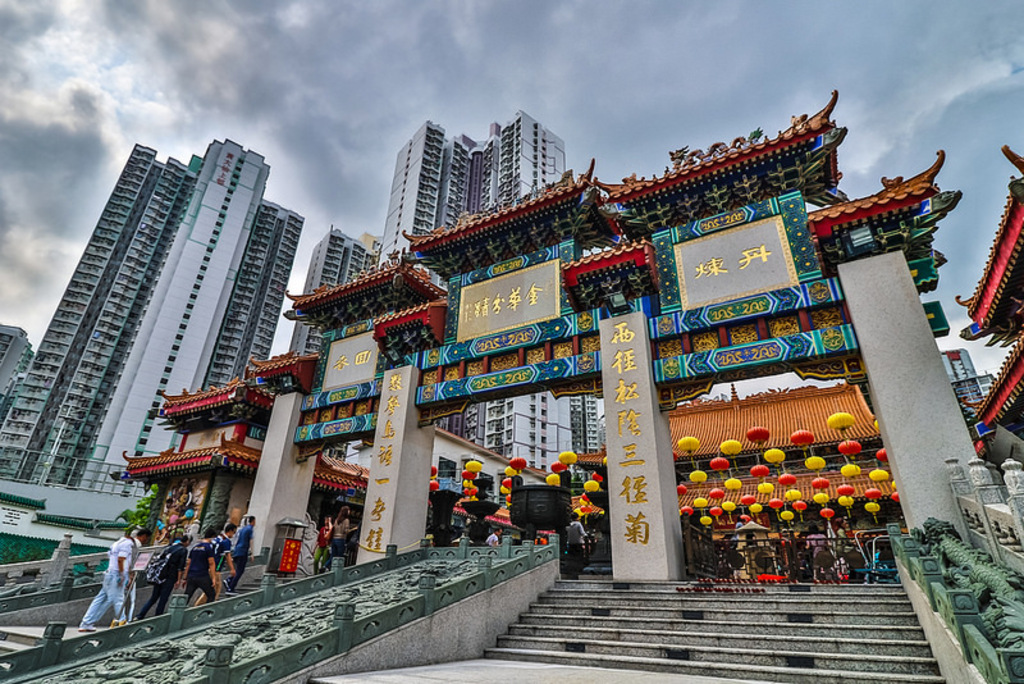
The Wong Tai Sin Temple was named after a fourth-century monk who would eventually become a deity. The temple adheres to Feng Shui standards, its structures represent five geometric elements which are metal, wood, fire, water, and earth. The temple is home to the three prevailing faiths prevalent in China: Taoism, Buddhism, and Confucianism. During the first half of January, many visitors come to give thanks for their answered prayers. Many people also visit during the Chinese New Year, coming right before midnight, offering Won Tai Sin glowing incense sticks. If you want to learn further about Chinese spirituality, you must visit this place.
7. Ten Thousand Buddhas Monastery
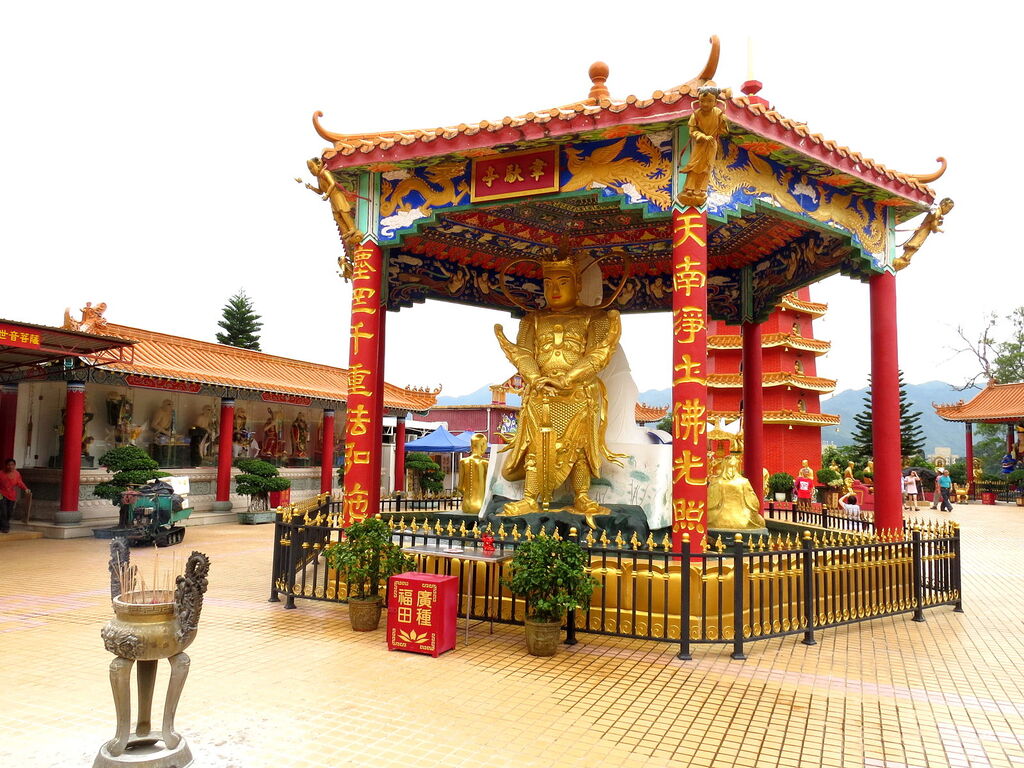
Located in Sha Tin, this unique temple contains more than 10,000 Buddhas. Many of them can be found on the walls of the main temple. Many life-sized golden statues can be also found around the steep steps that lead to the monastery as well. The place also features a nine-story pagoda. However, calling this place is a monastery is a misnomer, as it is not a functioning monastery. It was built only fairly recently in the 1950s. Nonetheless, this place is worth visiting because of the plethora of Buddha statues that greet you as you are walking up the many steps that lead to it. In addition, the place is free of charge, meaning you would not have to spend anything just to take a stroll up here.
8. Po Lin Monastery
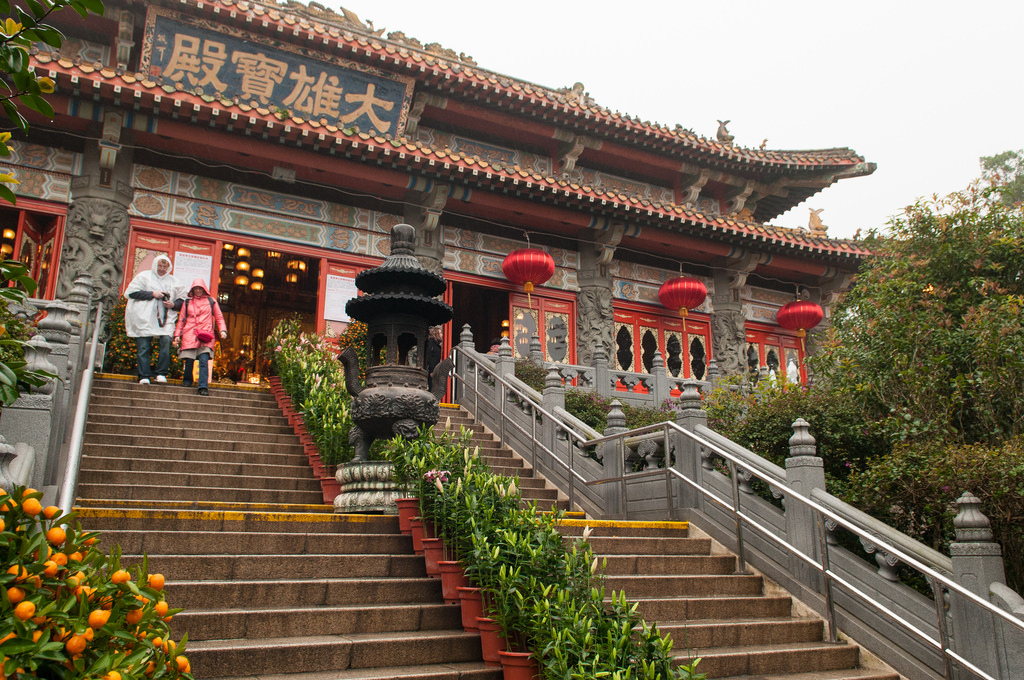
Located up in the high mountains on Lantau Island, it became a popular tourist attraction in 1993, when the Tian Tan Buddha statue was erected. It is 34 meters (111 feet) high and faces north towards Mainland China. Many Buddhist pilgrims from many different parts of Asia visit the Po Lin Monastery. It took 12 years to construct it. The Buddha has many symbolic intricacies. The right hand is raised to symbolize its blessing of all people. If you choose to climb all 268 steps, you will have a beautiful view of the mountains and sea. In addition, the monastery features a vegetarian restaurant where you can enjoy a meal after climbing all those steps. As one of the most important Buddhist monasteries in Hong Kong, Po Lin Monastery is known as “the Buddhist World in the South.”
Experience calm and serenity at Buddhist monasteries
Experience calm and serenity at the aforementioned Buddhist and Taoist monasteries in Hong Kong. In today’s fast-paced life it is imperative to step back and reflect. These monasteries provide just that right atmosphere.
History
Get Trip101 in your inbox
Unsubscribe in one click. See our Privacy Policy for more information on how we use your data







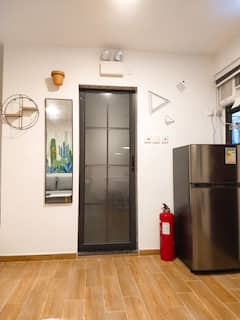
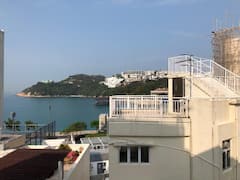
















Create an account to